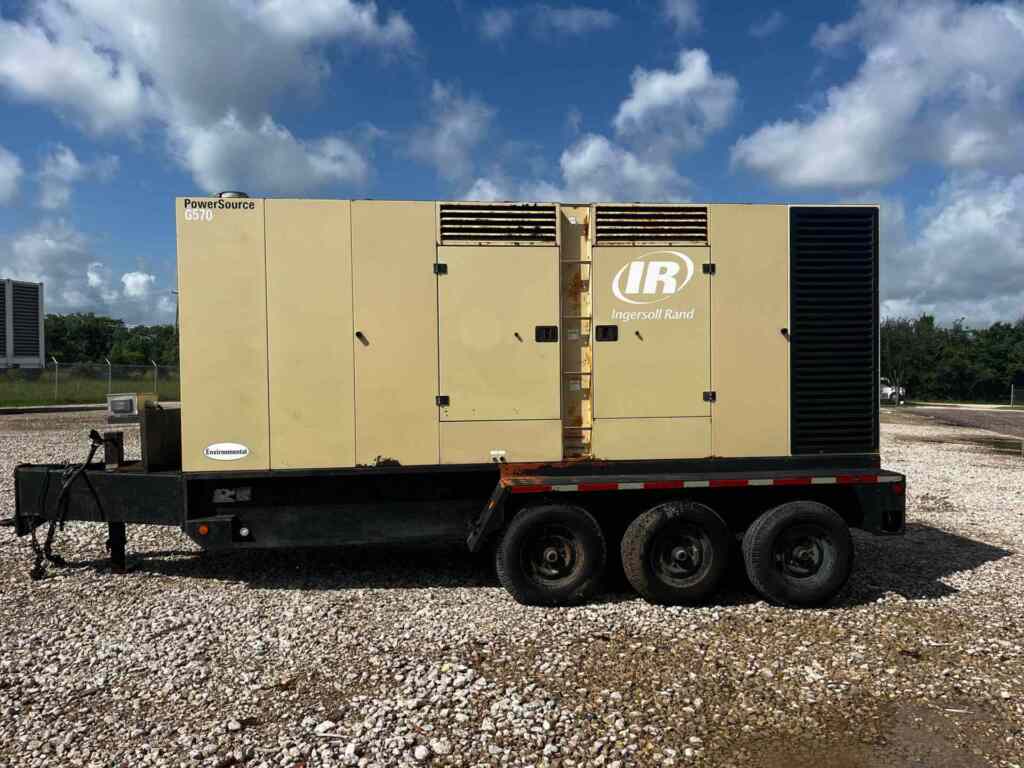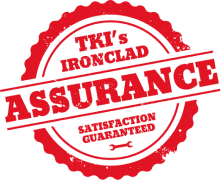Power outages can severely disrupt school operations, compromising safety, learning, and essential functions. Industrial generators for schools serve as a critical backup to grid power, ensuring continuity during unexpected blackouts. These school generators provide emergency power, maintaining vital systems and creating a safer environment for students and staff.
Why Schools Need Emergency Power Generators
Emergency power generators are essential for schools during power outages. They are a vital source of backup power, ensuring the safety and continuity of education for students.
Key benefits of school generators include:
- Safety: Ensure that fire alarms, emergency lighting, and security systems remain operational.
- Communication: Enable phone and internet systems to stay functional.
- Climate Control: Allow heating and cooling systems to provite climate-controlled conditions.
- Food Preservation: Keeps refrigeration systems running.
- Technology Protection: Ensure power supply to computers and smart boards.
- Administrative Functions: Allow office operations to continue uninterrupted.
- Accessibility: Enable elevators to remain functional in multi-story buildings.
Additional benefits:
- Emergency power generators allow schools to serve as community emergency shelters.
- School generators protect valuable research in college and university laboratories.
With emergency generators, schools maintain a safe, functional learning environment during power outages, minimizing disruption to education and ensuring student safety.
Types of Generators Suitable for Schools
Several types of generators can meet the diverse needs of educational institutions:
| Generator Type | Fuel Source | Best For | Advantages | Considerations |
| Diesel Generators | Diesel Fuel | Large schools, colleges, universities. | High power output, fuel efficiency, long lifespan. | Require regular maintenance, fuel storage considerations. |
| Natural Gas Generators | Natural Gas | Schools with access to natural gas lines. | Clean-burning, no on-site fuel storage needed. | Dependent on gas utility, lower power density than diesel. |
| Propane Generators | Propane | Rural schools without natural gas access. | Clean-burning, long shelf life of fuel. | Requires on-site propane storage, less efficient than diesel. |
| Bi-Fuel Generators | Diesel and Natural Gas | Schools requiring extended runtime. | Flexibility in fuel sources, longer runtime. | Higher initial cost, more complex system. |
Key Benefits of School Generators
Implementing emergency power generators in schools offers numerous advantages:
1. Enhanced Safety and Security
Generators ensure that critical safety systems remain operational during power outages:
- Fire alarm systems: Early detection and warning in case of fire.
- Emergency lighting: Safe navigation through hallways and exits.
- Security cameras and access control systems: Maintain campus security.
- Communication systems: Coordinate emergency response and contact parents.
- Elevator operations: Ensure accessibility for students with mobility issues.
2. Continuity of Education
School generators allow for uninterrupted learning by powering:
- Classroom lighting: Maintain an environment that is conducive to learning.
- Computers and other educational technology: Support digital learning initiatives.
- HVAC systems: Ensure comfortable temperatures for optimal learning.
- Laboratory equipment: Protect ongoing experiments and research.
- Auditorium and gymnasium facilities: Enable extracurricular activities.
3. Protection of Valuable Resources
Generators safeguard important school assets:
- Food storage facilities: Prevent perishable items from spoiling.
- Scientific equipment and specimens: Maintain proper storage conditions.
- Computer systems and data: Prevent data loss and hardware damage.
- Art supplies and musical instruments: Protect expensive supplies and equipment from temperature fluctuations.
- Medication storage: Ensure proper temperature for school health centers.
4. Community Support
Schools with generators can serve as emergency shelters during natural disasters, providing:
- A safe, powered environment for community members;
- Access to communication systems for emergency updates;
- Climate-controlled spaces for comfort during extreme weather;
- Charging stations for personal devices; and
- Food preparation facilities for disaster relief efforts.
Sizing Generators for Schools
Proper sizing of emergency power generators for schools is important for effective operation. Factors to consider include:
- Total square footage of the school: Larger buildings require more power.
- Number of students and staff: Affects overall power consumption.
- Essential systems requiring power: Prioritize critical loads.
- Peak power demands: Account for simultaneous operation of multiple systems.
- Future expansion plans: Allow for potential growth in power needs.
- Local climate: HVAC requirements vary based on geographic location.
- Specific equipment power requirements: Consider specialized lab or vocational equipment.
A professional assessment is recommended to determine the appropriate generator size for a school’s specific needs. This typically involves:
- Conducting a comprehensive power audit of the school.
- Analyzing historical power consumption data.
- Identifying critical and non-critical loads.
- Calculating total power requirements with a safety margin.
- Recommending an appropriate generator size and configuration.
Generator Installation and Maintenance
Proper installation and regular maintenance are essential for ensuring reliable performance of school generators:
Installation Considerations
- Follow Local Building Codes and Standards, securing all required permits.
- Install proper ventilation systems to prevent hazardous gas buildup.
- Design fuel storage and delivery systems for safety and efficiency.
- Implement noise reduction measures to protect the learning environment.
- Integrate the generator seamlessly with the school’s electrical system.
- Choose an installation location that’s protected from floods and severe weather.
- Ensure easy access for regular maintenance and repairs.
Maintenance Requirements
- Regular testing and inspection: Conduct weekly no-load tests and monthly load bank tests.
- Fuel system maintenance: Check fuel quality, clean tanks, and replace filters.
- Battery checks and replacement: Ensure reliable starting power.
- Oil and filter changes: Follow manufacturer-recommended intervals.
- Coolant system maintenance: Check levels, condition, and antifreeze protection.
- Air intake system cleaning: Replace air filters and clean intake components.
- Electrical system inspection: Check connections, clean contacts, and test safety shutoffs.
- Software updates: Keep control systems current with latest firmware.
Schools should establish a comprehensive maintenance schedule and partner with a reliable service provider to ensure their generators remain in optimal condition. This often includes:
- Annual preventive maintenance contracts;
- 24/7 emergency response agreements;
- Remote monitoring systems for real-time performance tracking; and
- Detailed record-keeping of all maintenance activities.
Cost Considerations for School Generators
When considering generators for schools, there are several options available: new generators, used generators, and rentals. Each has its own cost implications:
New Generators
New generators offer the latest technology, full warranty coverage, and typically lower maintenance costs in the initial years. While they have a higher upfront cost, they provide peace of mind and potentially lower long-term expenses. Here’s a breakdown of costs associated with new generators:
| Cost Factor | Typical Range | Variables Affecting Cost |
| Initial Purchase and Installation | $30,000 – $150,000+ | Generator size, fuel type, installation complexity |
| Annual Maintenance | $500 – $3,000 | Generator size, usage frequency, service provider |
| Fuel Costs (during use) | Varies | Fuel type, local fuel prices, generator efficiency |
| Replacement Parts | $1,000 – $5,000+ (periodic) | Generator age, brand, usage patterns |
| Upgrades and Retrofits | $5,000 – $20,000+ (as needed) | Technological advancements, changing power needs |
Used Generators
Used generators can offer significant initial cost savings, often 30-50% less than new models. However, consider these factors:
- Lower upfront costs, but potentially higher maintenance expenses.
- Shorter remaining lifespan compared to new generators.
- May have less efficient fuel consumption.
- Limited or no warranty coverage.
- Importance of thorough inspection and service history review.
When deciding between new and used generators, schools should weigh the long-term benefits and potential cost savings against these potential losses from power outages:
- Damaged equipment or spoiled food: Potentially tens of thousands of dollars.
- Lost instructional time: Impact on student learning and make-up days.
- Safety risks: Potential liability from accidents in poorly lit or unsecured areas.
- Disruption to administrative functions: Delays in payroll, record-keeping, and communications.
- Community impact: Loss of emergency shelter capabilities during disasters.
Generator Rentals
Generator rentals offer a flexible solution for schools, particularly for temporary needs or as a stopgap measure. Key points to consider:
- No large upfront capital investment required.
- Ideal for temporary power needs or during emergencies.
- Opportunity to “try before you buy” to determine the right size and type.
- Maintenance and repairs typically handled by the rental company.
- Ability to scale power needs up or dowan as required.
Rental costs vary based on generator size, duration, and local market conditions. Typical ranges include:
- Daily rates: $100 – $1,000+
- Weekly rates: $500 – $5,000+
- Monthly rates: $1,500 – $15,000+
Factors to consider with rentals:
- Fuel costs are usually the responsibility of the renter.
- Transportation and setup fees may apply.
- Long-term rentals can become more expensive than purchasing.
- Availability may be limited during widespread power outages.
Renting generators can help in the short term, but buying one might be better in the long run. Schools should think about what they need now and in the future. The best choice depends on the school’s budget and how often they might need backup power.
Secure Your School’s Backup Power Solution
When it comes to keeping your school powered up during outages, you need a partner who understands your unique needs. At Turnkey Industries (TKI), we offer the comprehensive solutions schools require:
- Tailored assessments to determine your specific power needs;
- Top-quality generators that deliver reliable performance;
- Expert installation and ongoing maintenance;
- 24/7 support for peace of mind; and
- Flexible financing options to suit your budget.
With years of experience serving educational institutions, the professionals at TKI truly understand the power challenges schools face. We offer both new and refurbished generators to accommodate different budgets without compromising on quality.
Our team will guide you through every step – from selecting the perfect generator to ensuring it runs smoothly for years to come. We’re committed to keeping your school powered when it matters most.
Don’t let power outages disrupt your school’s operations. Partner with TKI for your generator needs. It’s not just about equipment – it’s about ensuring your school stays safe, operational, and focused on education, no matter what challenges arise.
 Turnkey Industries offers a variety of high-capacity
Turnkey Industries offers a variety of high-capacity 




